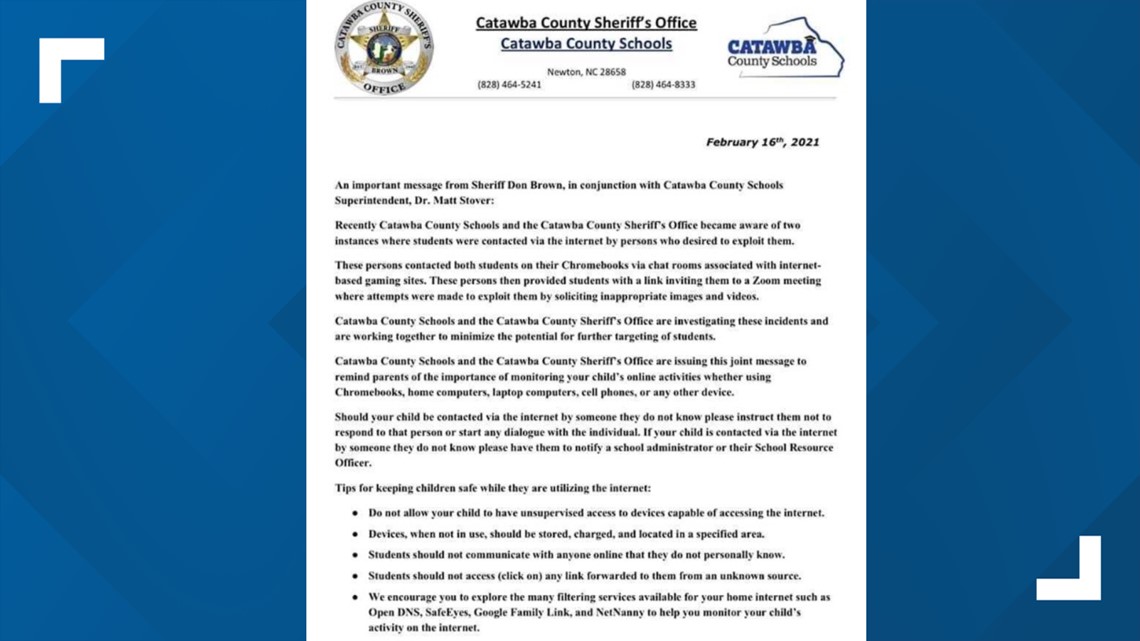NORTH CAROLINA, USA — A Davidson County teen is back home after police say she was abducted from her home by a stranger she met online. This scary situation is now prompting parents to take the necessary steps to monitor and protect their children from dangerous online activity too.
Police say in the case of 14-year old Savannah Childress, she was using a school-issued laptop to communicate with 38-year-old William Ice of Pennsylvania. Further investigation revealed at least 10 other NC teens had also been in contact with Ice as well.
"These predators online are very good at grooming techniques -- making these children feel wanted," Davidson County Sheriff’s Office Sgt. David Blake said.
The Catawba County Sheriff's office along with Catawba County Schools also shared a warning to parents about two recent instances where someone online contacted students online looking to exploit them.


Technology experts say there are better ways to protect children from falling victim to these crimes. There are plenty of tools to protect kids from online predators, but it should start with a series of serious conversations.
“Any tech device that your child has it’s very important that you put your hands on it, that you know the passwords for all those devices so that you can look in and see exactly what your kid is doing,” Integral technology expert Burton Kelso said.
Keeping your kids safe on the internet isn't a new concern for parents, but tech experts agree more unfiltered due to remote at-home learning is increasing their risk of exposure to predators.
Much like the tried and true advice before an internet era -- law enforcement agencies recommend parents teach kids not to talk to strangers online. That means telling kids not to respond or start a dialogue with anyone they don't know.
If a stranger contacts your child they should notify you, their parent, and a school administrator or resource officer.
Here are some other tips for keeping your children safe online:
- Do not let your child have unsupervised access to devices that can access the internet
- Unused devices should be stored, charged and located in designated areas.
- Students should not communicate with anyone online they don't personally know.
- Students should not click on any links forwarded from an unknown source.
- Consider using a filtering service through your home internet provider to track online activity. (ex. Open DNS, SafeEyes, Google Family Link, NetNanny)
Above all else, experts with Common Sense Media, a nonprofit internet safety advocate to families, said having a series of conversations with your children is your best protective measure.
Instead of flipping a switch, experts encourage parents to be the voice in kids' heads. That includes having conversations with them about privacy, security, malware and the other pitfalls they can find on the web. It also means parents teaching and modeling healthy behaviors.

